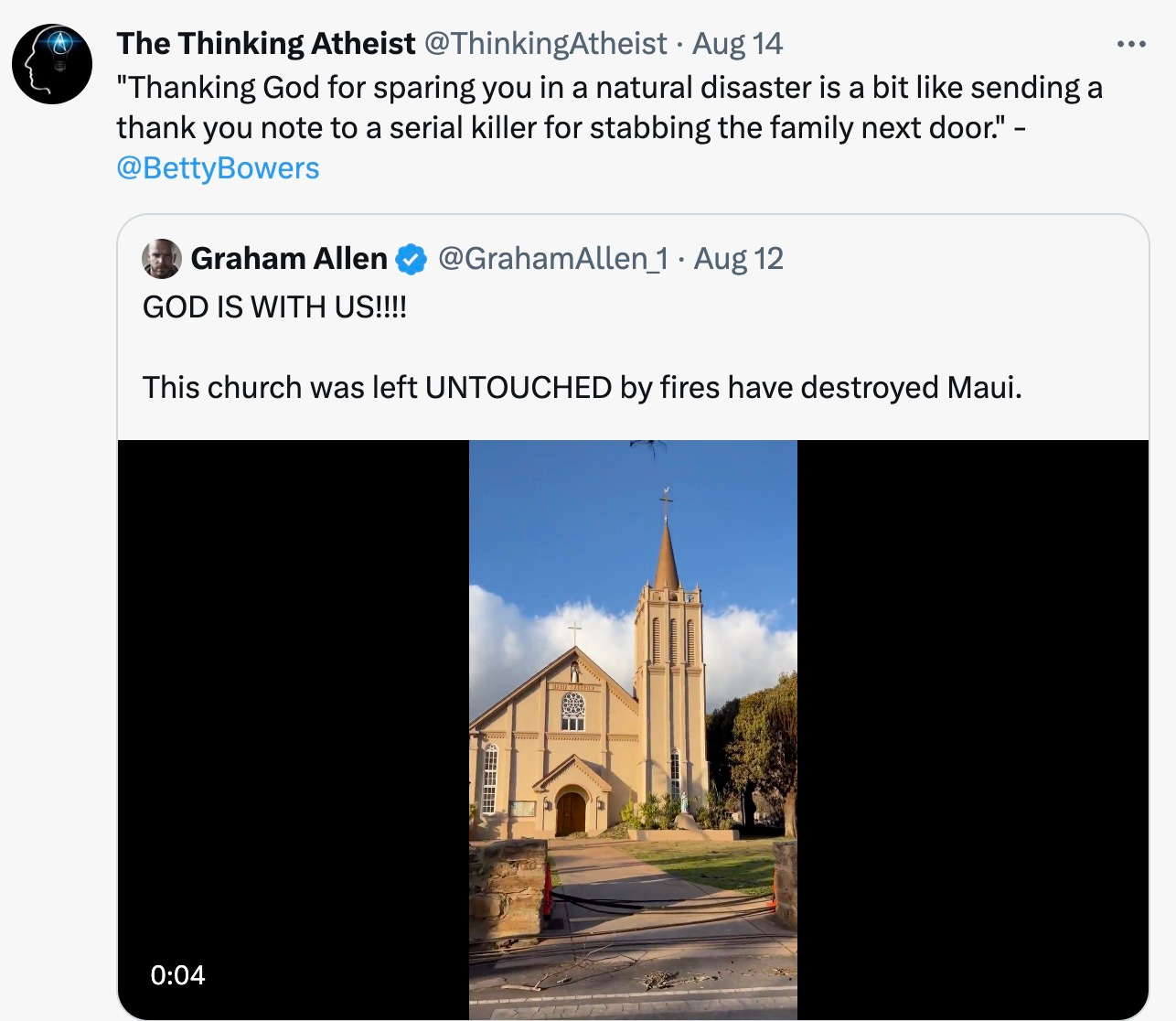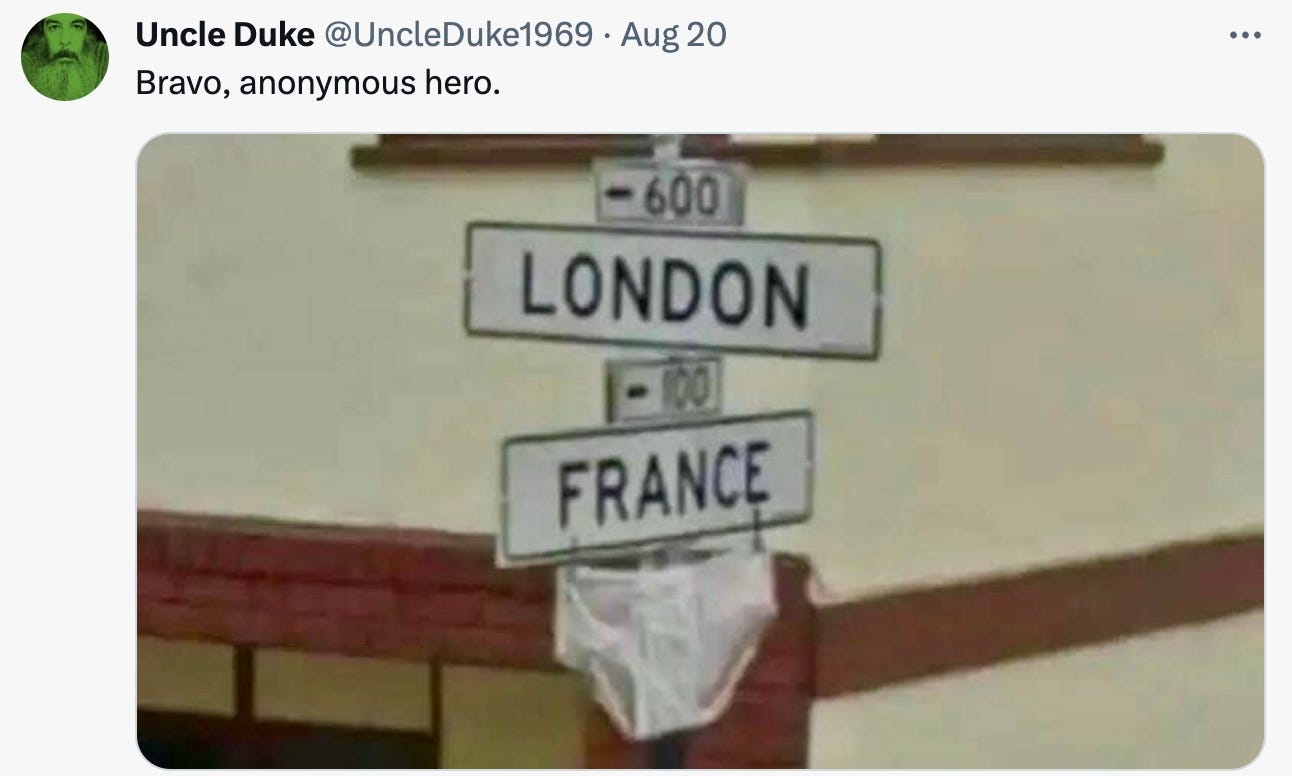What are the quintessential Chicago experiences?
& Hello? Won't anyone defend how Mayor Johnson fired Dr. Arwady?
To read this issue in your browser, click on the headline above.
Eric Zorn is a former opinion columnist for the Chicago Tribune. Find a longer bio and contact information here. This issue exceeds in size the maximum length for a standard email. To read the entire issue in your browser, click on the headline link above. Paid subscribers receive each Picayune Plus in their email inbox each Tuesday, are part of our civil and productive commenting community and enjoy the sublime satisfaction of supporting this enterprise.
What are the quintessential Chicago experiences?
Last week I wrote how the three-member Axios Chicago team is going about filling the conspicuous gaps in their lives as Chicagoans:
Despite our collective 60 years covering the city, there are certain quintessential Chicago experiences we've, embarrassingly, never done. Over the next few months we're going to tackle them as newbies and see if they live up to the hype.
So I asked readers to help me create a list of “Never Have I Ever in Chicago …” experiences. I was inundated with responses. Below are the necessary Chicago experiences that received at least two mentions:
Going to Millenium Park
Going to the top of the Willis Tower
Going to the Green Mill
Spending an afternoon at a city beach
Going to the Adler Planetarium
Going to the Lincoln Park Zoo
Going inside the Lyric Opera House
Taking an architectural boat tour
Visiting the Pullman neighborhood
Riding the Navy Pier Ferris Wheel
Going to a Cubs game
Going to a Blackhawks game
Going to a Bears game
Attending Taste of Chicago
Attending the Air and Water Show
Attending Lollapalooza
Attending a free concert at Grant/Millennium Park
Going downtown to see the Chicago River dyed green for St. Patrick’s Day
Using household junk to claim dibs on a parking space
Eating at Superdawg
Eating at the Wiener’s Circle
Eating or drinking at the Billy Goat Tavern
Eating an Italian beef sandwich
Eating a pepper and egg sandwich
Eating pineapple on a pizza.
Drinking Malört
Seeing a show at The Second City
My question for you today is, which of these do you consider to be quintessential? I have created a click survey where you can check as many of these as strike you as core experiences that every Chicagoan should have. Remember, I’m not asking which of these things you have done —- that question will come on Thursday when, with your help, I will rank the top 10 local “never have I ever …” gaps.
To repeat, this survey asks what you consider to be activities that real Chicagoans ought to have done.
Notes and comments from readers —lightly edited —- along with my responses
Most of my correspondence in the past week has been about Mayor Brandon Johnson’s firing of Chicago Department of Public Health Commissioner Dr. Alison Arwady. My take on that can be found at “Mayor Johnson is down, in my estimation, because …” and“Realize this: Johnson stepped on a rake in the way he fired Arwady.”Again, still, so far, though some have come forward to defend the firing as mayoral prerogative based on legitimate policy differences, no one has yet come forward to defend how Johnson’s administration executed the firing.
Marty G. — We hope our elected officials will surround themselves with competent professionals, especially in areas where education and experience should be the deciding factor. I believe the mayor made a mistake in this firing, a mistake that could have a negative effect on the citizens he professes to serve. He never sat down with Dr. Arwady to have a conversation, and he chose the coward’s way of dismissing her by having an underling to it at the close of business on a Friday afternoon. It appears to be nothing but payback on behalf of his former employers at the Chicago Teachers Union, and his responses to the question of why he did it are disingenuous and flippant. He owes the city a much more complete explanation of the decision.
Zorn — Yeah, and we aren’t going to get it. Johnson’s subsequent public statements have been a blizzard of obfuscation and cliche, claiming it would be improper to discuss such a personnel matter in public. That would be true if Arwardy were some low level city employee getting the broom for some sort of misbehavior, but it’s false when it comes to the dismissal of a top official.
The public has a right to know his reasoning and he has an obligation to discuss it in detail and stop quoting rappers and falling back on his now-tired “I am collaborative” claim, which is really starting to sound like the empty verbiage I suspected it was during his aspirational campaign.
Rima — The more I learn about Mayor Johnson, the more I feel sorry for the people of Chicago.
Zorn — He has been underwhelming so far, to be sure. I’ve heard some chalk up his clumsy handling of the Arwady decision as “a rookie mistake,” but no, sorry, you don’t get on the job training or a batting tee when you’re the mayor of Chicago.
Irene W. — Johnsons didn’t even have the decency to face the lady who gave us her heart and soul for almost three years . Shame, shame, shame on him. Dr. Arwady needs to know we all appreciate what she did for us.
Zorn — I expect she’s getting the picture. A letter to the editor published in the Sun-Times from her predecessors as CDPH commissioner — Dr. Bechara Choucair (2009-2014) and Dr. Julie Morita (2015-2019) — was highly laudatory:
For more than three years, Dr. Arwady and the team she built came to work every day with a single-minded mission: to protect the health of Chicagoans, especially those most impacted by the pandemic. When should we wear masks? Who should get the first rounds of precious vaccines? What did schools need to keep students and teachers safe?
These were extraordinarily hard questions and there was no playbook for this pandemic. They used the best available information from the Centers for Disease Control & Prevention, scientists, and health care providers. They listened to and partnered with community members, alderpersons, and community partners to inform discussions with city officials and other agencies. They worked around the clock to communicate clearly, consistently, and with care to people living in the city and other parts of Illinois. In doing so, they became a trusted source of information and saved countless lives.
Given many chances in the past week to apologize to Arwardy or explain why he handled the situation the way he did, Johnson has declined.
Michael P. — I am a physician and a Chicagoan and one who is often critical of the present medical establishment. But Dr. Arwady was one of the best public health leaders during the COVID pandemic. She earned our respect. Our new mayor is doing just the opposite. He was handed a gift and is now squandering it. What a travesty. What a jerk. I didn’t think things would end well under him. His every move proves me right, something about which I wanted to be wrong. Terribly sad for Chicago. In medical terms we call this cranial rectal inversion. It’s a difficult problem to treat.
Adair S. — . As a retired public health professional, I know how difficult it is to influence behavioral change in order to promote health and prevent illness. The way Dr. Arwady handled questions and negative commentary was masterful. She was also able to explain very complicated science in a way that is easy to understand without talking down to her audience. I will miss her sense of humor, friendly manner and trustworthy health information. We are not out of the COVID woods yet.
Sarah K. — The mayor’s behavior is unprofessional and does not reflect the values of respect or collaboration he espouses.
Zorn — I am not cherry picking these letters to show you only ones that agree with my point of view. Honest. I am still waiting for the first letter that says “Mayor Johnson handled that well. It’s a sign that he’s going to be a good leader.”
Meanwhile, there was quite a bit of discussion on the comment threads about Jake H’s extended comment making the case that the teachers in Chicago had a good argument against what they considered a too-early return to in-person learning.
Patrick — I’d like to see Jake H cite statistics that compare Florida’s school test scores to Chicago’s scores, not Illinois.' Because we’re talking here about the Chicago schools and the Chicago Teachers Union.
Steven K — The members of the CTU are free to pretend that they have more medical expertise than the city’s public health commissioner. They are free to be overly cautious of exaggerated risks. The sad thing here is that the CTU leaders are well educated and yet they seem to be unable to grasp the most fundamental rule of critical thinking: When facts differ from one’s beliefs, one must change one’s beliefs.
C. P. — A growing body of evidence from around the country was showing that schools being open was increasingly safe, especially for the vaccinated. Remember, this was long after vaccination was available and Arwardy and Lighfoot moved mountains to try to get the most vulnerable communities vaccinated. By the time they wanted to open the schools there was also growing evidence of the negative impacts in Chicago from school closure such as youth carjackings, youth violence, and youth suicide. As a health professional Arwady wanted to minimize these unhealthy outcomes too.
Part of the reason that the black community was reluctant to go back to school is that the CTU and other leaders kept telling them it wasn't safe. Does the fact that so many Republicans believe Trump won the 2020 election and is innocent of all his crimes make it true? Or is the fact that Republican leaders will not stand up and tell them the truth contribute to their misconceptions.
The bottom line is that 20/20 hindsight has vindicated Arwardy and Lightfoot and it would behove our educators to admit that they misjudged this one instead of vindictively firing such an accomplished health professional just because she didn't bow to their commands.
Zorn — Jake responded in the thread that his comment was “sort of a devil’s advocate exercise” to counter the narrative that teachers were just being lazy and cowardly. Here’s some of how he responded to his critics among the readership:
I completely agree that the dismissal of Arwady was a chickenshit move. I also think that the CTU has become too extreme and activist. But If it were true that remote learning was so damaging, you should expect to see a state that mandated full return – Floridia, a state that did precisely what the "return now" crowd wanted -- to do better relative to pre-COVID test performance than a state that followed the opposite policy, a state where hated teachers' unions held sway, and where very large fractions of students were remote for much longer.
But if you want to compare Chicago to Florida pre- and post-COVID-19 school shutdowns, here you go:
4th grade average reading scores in CPS went down 3 points (on a 500 point scale), while Those scores stayed steady in Florida. (Florida did 3 points better than CPS.)
4th grade math scores in CPS went down 10 points, while going down 5 points in Florida. (Florida did 5 points better than CPS.)
8th grade reading in CPS went down 2 points, while going down 3 points in Florida. (CPS did one point better than Florida.)
8th grade math in CPS went down 12 points, which is a lot, but remember those scores decreased by an also large 8 points in Florida. (Florida did 4 points better than CPS.)
When you average all those differences together, Florida did 2.75 points better than CPS at maintaining academic performance on a 500 point scale.
To hear some talk, you'd think school closures made a whole generation much dumber forever. I'm not seeing it. To take just one example, the Chicago 8th grade math score, even after that big 12-point drop (just 4 points worse than the Florida drop in the same category), was still better than it was in 2005.
My hunch is that much of the difference you do see is attributable to a lack of access to technology and insufficient remote learning policies to address the needs of the most at-risk students along the lines I suggested.
The NAEP survey lends some support to this theory where it reveals that a large percentage of remote learners (something like half, I think) said they did not have adequate access to needed technology. If that's true, the problem for many wasn't so much remote learning as *no* learning, which is a much different problem!
I also wonder about the extent to which COVID-19 affected students' psychological states *outside of school*, i.e., independent of their school's policy. To what extent were their lives restricted or development frustrated in other ways, and to what extent did that affect their academic performance?
I was totally in favor of 100% reopening in fall of '21, when CPS actually did reopen, and I greeted the remnants of CTU grumbling at that very late date with an eye-roll and an "Oh, come on."
I believe that Arwady was pushing for reopening earlier, in early '21 (i.e., second semester of the 20-21 school year), when most suburban districts I think were doing some sort of hybrid thing. I saw opposition to reopening *then* as more reasonable.
But I also saw Arwady's view as reasonable. I resist the idea that the timing and nature of reopening during the 20-21 school year was an easy, obvious call. I think the fall 2020 100% return DeSantis approach, well before vaccines were available, was too early, and I certainly think anything later than fall 2021 would have been too late. In retrospect, I think the suburban districts probably struck a decent balance, staying out in fall of 2020 but returning partially in winter or spring of 2021, with full return in fall of '21.
My main point is that I seriously question the new conventional wisdom that early reopening, of the sort enacted in Florida, was a tough but necessary stand to prevent dire learning loss. When I heard about DeSantis's approach, my immediate thought was, well, it will be interesting to see all the geniuses that Florida produces as a result. I was skeptical, and I think I was right to be skeptical.
Zorn — I find Jake’s nuanced approach to this issue both refreshing and enlightening. Nothing I’ve read so far tells me that Dr. Arwady made decisions based on cavalier disregard for teacher health or any reason other than that which was dictated by her best medical judgment.
Peter Z. — I —woo!— find Ronnie Woo Woo hard — woo! — to take. Especially —woo! — if —woo! — you —woo! — sit —woo!— near — woo! — him.
Zorn — My item Thursday, — “Woo2 — Bah or rah?” — in response to Block Club Chicago’s enthusiastic coverage of “Wrigley Field’s most famous fan” yielded a landslide click-poll verdict against the peppery, octogenarian Cubs rooter who punctuates his relentless cheers for the home team with “Woo!”
Unscientific, of course, and the collective judgment — reflecting my judgment, I admit — is harsh in light of Wickers’ difficult life story, artfully rendered by reporter William Hageman in a 2004 Tribune profile:
Wickers' childhood was difficult -- he was sickly at birth and spent months in an incubator. He says he was physically and mentally abused by his mother, and he had learning difficulties that prevented him from getting past grade school. …
His happy childhood memories revolve around (his grandmother) and baseball. Over the years, the game was an anchor. It saw him through nearly a decade, from the mid-'80s to early '90s, of homelessness and drinking problems. He turned his life around mostly by sheer will; he just decided he didn't want to live on the streets any longer. And he always had baseball. When life got to be too much, he says, he'd go to the ballpark and talk to fellow fans. When they asked him to cheer, he says, it would help him forget his problems. …
Most of his income comes from a couple of dozen neighborhood businesses for which he washes windows. Wickers also makes occasional paid personal appearances at birthday or graduation parties, walks dogs, shovels snow and has even done a couple of commercials.
There is a poignancy to his story that brushing him off as an annoyance or embracing him as a cuddly icon overlooks. If he’d just pipe down …
Dave B. — You asked in a click poll if anyone knew who “Joe Shlabotnik” is. I am one of the 34% of respondents who were aware that Shlabotnik is the fictional favorite major leaguer of sad-sack cartoon character Charlie Brown.
I knew this because, back in the day, “Peanuts” was one of the few comic strips everyone read. But creator Charles Schulz died in early 2000 at age 77, one day before the last original “Peanuts” appeared in Sunday papers.
Yet old “Peanuts” strips still run in the Tribune. Why?
Does the Tribune regularly run old columns by Phil Vettel, Blair Kamin, Jerome Holtzman or Greg Kot? No.
There are plenty of excellent young comic strip writers out there that can't get published because newspapers continue to print stale, old comics like Blondie, Beetle Baily, Dick Tracy, and, yes, Peanuts, whose original writers have long since died.
Zorn — There is a timeless quality to “Peanuts” strips, but I share your feeling about the reruns. Give new artists a chance!
But I know that newspapers regularly test the popularity of individual comic strips, and that if research showed that readers were tired of “Peanuts,” it would be gone. I doubt that this is a way to attract new, young adult readers who look for relevance and edge in their humor, but young adult readers are probably not going to be looking to hard copy newspapers for information or entertainment.
“Peanuts” serves the nostalgic interests of a dying demographic— similar to the demographics of the Picayune Sentinel readership: Only 2% of the 533 readers who answered my Shlabotnik survey indicated they were under 50.
Ya gotta see these tweets!
Here are some funny visual images I've come across recently on social media, gleaned with the help of gracious and helpful readers who answered the call for nominees. Thanks! Enjoy, then evaluate:
Vote for your favorite. I will disqualify any tweets I later find out used digitally altered photos to make the joke. I’ll share the winner in Thursday’s main edition.
There’s still time to vote in the conventional Tweet of the Week poll!
Thank you for supporting the Picayune Sentinel. To help this publication grow, please consider spreading the word to friends, family, associates, neighbors and agreeable strangers.
.















Pineapple on a pizza? That’s not the Chicago I know. Cancel my subscription.
I misunderstood, thinking you wanted a list of what I have not done. Chicago has many quintessential experiences, many listed. Missing: drive Lake Shore Drive and drive Lower Wacker; neighborhoods; attend neighborhood festivals; enjoying ethnic food; Marshall Field's holiday windows; walk the Loop & Mag Mile when it's snowing; walk or bike the lakefront; ride the el; Frango Mints (or other favorite candy, which for me is Vosges); have a favorite local restaurant; Mario's Italian Lemonade; Manny's; Valois; bookstores in Hyde Park; holiday concerts; nitrates; gospel music. All Chicago's great museums combined, together with the performing arts, make up a huge part of what makes Chicago great. Reading a daily newspaper might have qualified once upon a time. I would not consider Lollapalooza, invented elsewhere, as quintessentially Chicago. And pineapple pizza? Did Zorn add that as a red herring just to see if people were actually reading?